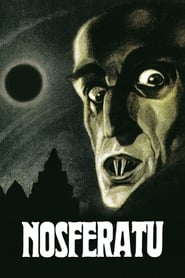It is absolutely wild to me that this film was so frightening (for its time) that it got banned in Sweden and people thought Schreck was an actual vampire. Do we have a similar film in our modern context? The only thing I can think of is Blair Witch Project.
It was also fascinating that the film conflates the terror of death with the plague. I don’t remember if that was part of Dracula (which I haven’t read since high school), but I immediately assumed a connection between the plague terror of the film and the real-world horrors of the Spanish Flu. Relatable.
I am not convinced every idea works well here. The lore is somewhat muddied — why is there a werewolf? Who is the werewolf? Is this common in that country? Why is daylight a problem for vampires? Can they open doors with telekinesis? If yes, why doesn’t Nosferatu open windows that way too? Shouldn’t those that they bite also become vampires after their death?
But the film’s influence is obvious. Horror has been shamelessly cribbing this for 100 years: intense shadows, long claws for fingers, the way Schreck walks, the wife suddenly possessed and dangerously sleep walking, etc. I can’t believe I never saw this before tonight.
Sadly, the film’s lowest points have also been cribbed for 100 years. Most of it is poor character motivation. Why doesn’t Hutter leave the castle right away? Why does he take the book home with him? Why does he fall asleep (??) when Nosferatu walks into his bedroom? Why doesn’t he just leave the castle by walking out the front door? Why stage such a ridiculous escape after he sees Nosferatu leave?
I felt the same way watching this that I do for almost every horror movie ever: why are they doing this? This is not how any normal person would act. This is so dumb.
All that being said: this doesn’t exactly hold up, but this is the template, and it’s got a baller soundtrack, and Schreck is the best. Somehow better than many of its imitators.
And if Werner Herzog says it’s the best German movie of all time, who am I to argue?
